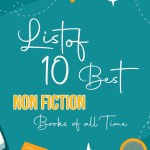Writing a book is a dream shared by many, but for aspiring book writers, the journey from idea to publication can be daunting. However, with dedication, perseverance, and the right guidance, turning that dream into reality is entirely possible. In this article, we’ll explore ten essential tips that every aspiring book writer should know to navigate the writing process successfully.
Here’s the list of ten tips for aspiring writers.
Tip 1: Define Your Audience
Knowing your audience is crucial in the wide world of writing, especially for aspiring book writers. Give careful thought to who your target readership is before you start writing. Who do they represent? What are their passions, challenges, and areas of interest?
Focusing on your intended audience will help you craft material, tone, and writing style that will appeal to them on a deep level. Knowing your audience’s tastes will guarantee that your work engages and connects with them deeply, whether they are romance fans or fantasy fans seeking epic adventures. Thus, go inside your readers’ thoughts and create tales that will compel them to turn the next page.
Tip 2: Read Widely
“Read widely” is a golden rule for aspiring book writers. Reading a wide range of literature improves your writing abilities and expands your literary horizons. Immersion in a variety of genres, styles, and voices as a book writer provides priceless insights into narrative structures, character development, and storytelling approaches.
Whether you read classic books or modern bestsellers, every page you turn will reveal fresh ideas and inspirations that will spark your imagination and help you develop your own writing style. Thus, remember this crucial advice as you embark on your career as a book writer: read widely since there are lessons to be learnt in every book.
Tip 3: Write Regularly
Being consistent is essential to become a good book writer. Writing frequently is one of the most important pieces of advice for emerging book writers. Writing consistently helps you hone your art and maintains your creative juices flowing, ready for inspiration.
Making a pattern, whether it be a set word count target for each day or timed writing sessions, can keep you motivated and focused on your task. Keep in mind that getting on the paper is half the fight won, especially on the days when inspiration seems elusive. Thus, commit to writing on a daily basis and observe how your literary aspirations materialize.
Tip 4: Set Realistic Goals
Achieving success as a book writer requires defining and achieving attainable goals. It takes commitment to create your literary masterpiece, but you must be careful not to set yourself up for failure by having high expectations.
To begin, divide your ultimate objective of finishing a book into achievable steps, such as creating chapter summaries or establishing daily word counts.
This strategy guarantees consistent advancement towards your goal of being a published author while also keeping you inspired. Remember, neither Rome nor a best-selling book were created overnight. Maintain your motivation and focus, and your literary goals will eventually come to pass.
Tip 5: Embrace Failure
Aspiring book writers view failure as a springboard for development rather than an obstacle on their path. Accepting failure is a necessary part of developing your craft and skill set.
Every manuscript rejection, critique, and obstacle is a chance to grow, change, and get better. Setbacks shouldn’t deter you; instead, use them as motivation to keep moving forward. Recognise that failure is a vital component of your journey rather than its conclusion.
Accept it, draw lessons from it, and use it to inform your future writing. In the realm of novel writing, failing is a badge of perseverance and dedication rather than a sign of weakness.
Tip 6: Edit Ruthlessly
One crucial piece of advice for prospective book writers is paramount: edit ruthlessly. It’s a philosophy, not merely a matter of polishing text. Every word and every statement has a purpose.
Removing extraneous details improves the story’s coherence, draws readers in, and enriches the narrative. Accept the subtraction method and apply merciless redundancy. Recall that accuracy takes your work from decent to outstanding. Use your red pen with commitment to shape your manuscript into its best version during the editing phase.
Gaining proficiency in this area sets you apart from the pros and helps your book stand out from the crowd of other wannabe writers.
Tip 7: Seek Feedback
Getting feedback is essential on the path to becoming a successful novelist. Positive critique illuminates the way forward and serves as a beacon of guidance.
Future book writers ought to welcome criticism as a tool for improving their work. Every viewpoint, whether it comes from editors, beta readers, or other writers, is insightful. Accept the feedback loop and use criticisms as a chance to improve. Recall that even seasoned writers used to ask for criticism on their initial versions.
Crafting great stories is the result of an ongoing cycle of improvement. So, welcome criticism with open arms; it’s the key to becoming a literary sensation among authors.
Tip 8: Join Writing Communities
Writing groups are a huge game-changer if you want to improve your craft and find support for yourself as a book writer. These dynamic hubs provide priceless tools, criticism, and support that can help you take your skill to new heights.
Making connections with other book writers not only promotes a feeling of solidarity but also introduces you to a variety of viewpoints and writing styles.
These networks are rich sources of inspiration, whether you use them for exchanging ideas, taking part in writing contests, or looking for guidance on difficult story turns. Accept the creative force of the group and see your writing soar!
Tip 9: Learn the Craft
For those who want to create books, becoming an expert in the field is essential. Aspiring book writers must immerse themselves in the craft of storytelling in order to begin this journey, developing their abilities via constant research and practice.
Studying the craft entails exploring the subtleties of literary balance, character development, and story structure. It involves mastering the art of constructing worlds that enthrall readers as well as the rhythm of language and story arcs.
Aspiring authors can develop their voice, strengthen their storytelling abilities, and eventually clear their path to literary success by investing time in the craft.
Tip 10: Persevere
Persistence is essential to succeed in the field of book writing. Writing a novel is a difficult process that involves several obstacles, such as getting beyond writer’s block and figuring out the publishing industry.
Nevertheless, those that endure through the deepest literary abysses come out on top. Every edit and every rejection letter is a step closer to mastery. We beg aspiring book writers to embrace the strength of perseverance.
Allow it to strengthen your commitment, stoke your enthusiasm, and direct your writing. Recall that each word you write represents a small victory that brings you one step closer to realizing your writing goals.
Conclusion
Although writing a book is a difficult trip, authors can improve their chances of success by paying attention to these ten crucial pointers. Identify your readership, read extensively, write frequently, set reasonable objectives, accept failure, edit brutally, get feedback, participate in writing communities, hone your skill, and most importantly, never give up.
Athletes who have a love of writing and are committed to delivering compelling stories can fulfill their ambitions of becoming published authors.
Frequently Asked Questions
Finding inspiration for writing can come from various sources such as personal experiences, observations, books, movies, or even everyday occurrences. Keep a journal, jot down ideas as they come to you, and remain open to inspiration from unexpected places.
No, a formal degree in writing is not a prerequisite for becoming an author. While formal education can provide valuable skills and knowledge, many successful authors are self-taught or have backgrounds in other fields. What’s essential is a passion for writing, dedication to honing your craft, and a willingness to learn and grow as a writer.
Some common pitfalls for beginner writers include procrastination, self-doubt, perfectionism, and lack of discipline. Overcome these obstacles by establishing a regular writing routine, setting achievable goals, seeking feedback, and embracing failure as part of the learning process.
Staying motivated during the writing process can be challenging, but finding what inspires you and setting small, achievable goals can help maintain momentum. Celebrate your successes, seek support from writing communities, and remind yourself of the reasons why you started writing in the first place.
Yes, there are numerous online resources available for aspiring writers, including writing forums, blogs, podcasts, online courses, and writing communities. Websites like Writer’s Digest, Reedsy, and Scribophile offer valuable advice, resources, and opportunities for writers at all stages of their journey.
















